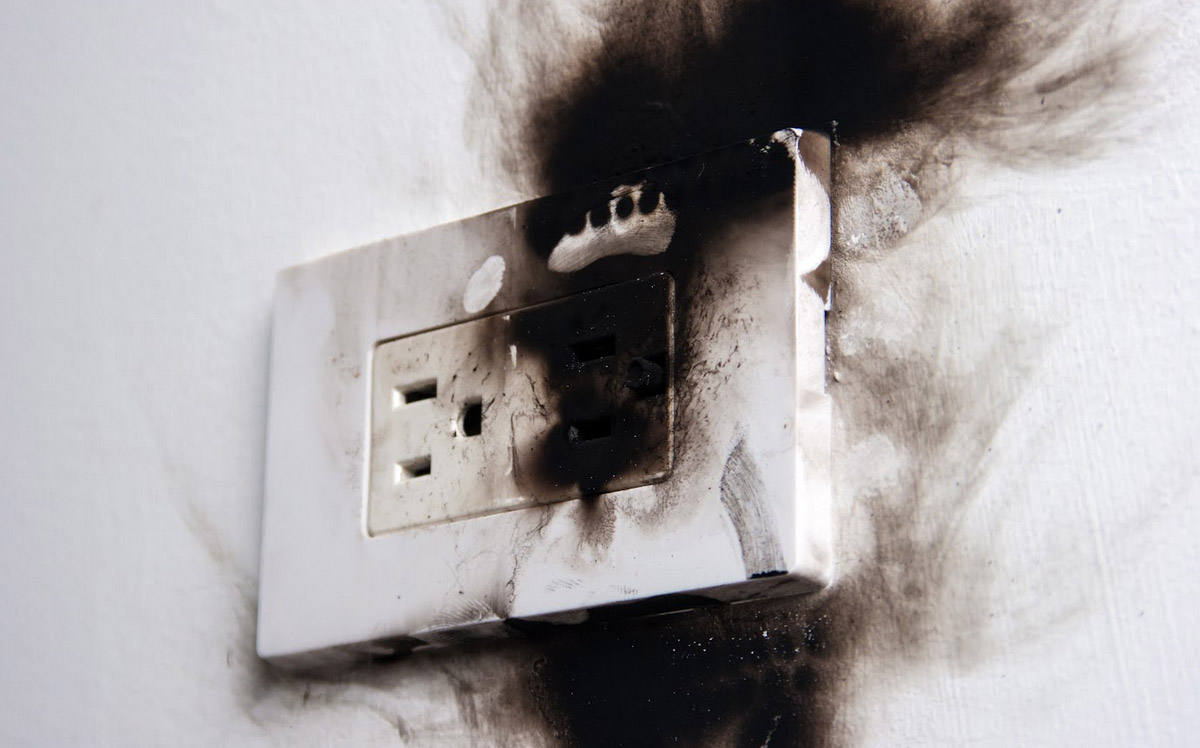It is easy to understand how a fire starts if you are outside camping. You need a spark, oxygen in the air, and fuel for the fire to feed on. However, electrical fires may be more difficult to understand. Electrical fires are not only dangerous, but they can be challenging to understand. Here are some ways electrical fires can spark and cause an enormous amount of damage to your home.
Causes of Electrical Fires
Electrical fires can begin from a variety of sources.
Faulty wiring
One of the main reasons electrical fires begin is the wiring in your home. Often, these wires are not visible because they are in your walls. The older the wires are in your home, the more likely they are to become a problem. Older homes with old wiring are not equipped for the demands of today’s electrical needs. 100 years ago, homes may have had one outlet per room; now, however, families need tons of outlets for appliances and charging electronics. Electrical wires have insulators to protect them from sparking that could cause a fire. However, the older a wire is, the more likely the insulating agent has thinned or worn out, meaning it can create a spark that causes a fire.
Electrical cords
Like the wiring in your home, electrical cords have insulators that protect your home from sparks caused by electricity surging through the cords. The older your electrical cords are, the more likely they are to be worn in places. You may even have wires showing through the cord. Also, if you are using too many extension cords in your home, you have multiple opportunities for a spark to occur.
Overloaded outlets and circuits
All homes have a specific capacity for electrical usage. Your home may not be equipped to deal with all of the demands for electricity you have. For example, if you love to whip up things in the kitchen in imitation of your favorite TV chef, you may have tons of appliances for cooking, such as a food processor, air fryers, blenders, and other accouterments. If you are plugging in three or four appliances at a time into one outlet, you could overload the outlet. When an outlet gets overloaded, it can short out, and the resulting spark can cause a fire. Circuits are a loop that electricity can travel in. When the loop gets overloaded, it can also spark.
Loose plugs
While you are looking at your outlets, it wouldn’t hurt to check out the plugs on your lamps and other appliances. You need to make sure that the plug fits right up against the outlet. If the plug is loose, the electricity can arc out, which creates a spark.
What to Do After You Have an Electrical Fire
If you have experienced an electrical fire in your home, you will want to have a contractor come in and assess the damage. You need someone who is licensed to restore your house back to the home that you remember. Top to Bottom Renovation has been helping people restore their homes after fire damage for years. Contact us today to arrange an appointment.



